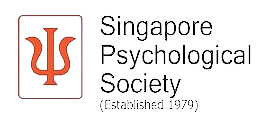Compassion Focussed Therapy (CFT)
What is Compassion Focused Therapy?
Have you ever noticed how you treat yourself? Is it the same as how you would treat your friend?
For many of us, we tend to treat others with more kindness and compassion than we would show ourselves. This is especially true for people who struggle with self-criticism and shame, which are associated with low self-esteem and chronic stress, as well as higher rates of mental health difficulties such as depression and anxiety.
Compassion Focused Therapy (CFT) is a form of psychological therapy that takes on an integrative and biopsychosocial approach, which draws on neuropsychological, cognitive-behavioural, social and attachment theories (Gilbert, P., (2014), (2017)).
It is designed to help individuals with high levels of self-criticism, shame and difficulties with self-compassion.
What Compassion Focused Therapy Helps With
CFT helps us to cultivate a more self-caring and self-compassionate stance and build a more balanced emotion regulation system, which can improve our overall well-being.
It is transdiagnostic, which means that it aims to target underlying processes that are common across a range of mental health conditions.
Indeed, CFT has been shown to be beneficial for individuals struggling with shame and self-criticism (Gilbert, P. & Procter, S. (2006)) and a wide range of mental health conditions including depression, anxiety, psychosis, trauma, substance abuse, and eating disorders (Petrocchi, N., et al., (2024)).
How CFT Works
CFT involves understanding more about how our brains work and developing a more compassionate self. It helps us address the inner critic that maintains unhelpful thoughts and behaviours, and helps us to stop being our own worst enemy.
With CFT, we can learn to face challenges with kindness and support instead of self-judgement and self-blame.
CFT is based on the idea that we have an emotion (affect) regulation system that comprises threat, drive and soothe systems.
- Threat system: Our internal warning system that is activated when we are faced with threat or danger. It is often associated with feelings of anxiety, anger, shame and disgust.
- Drive system: Focuses on doing and achieving, and propels us towards potentially useful goals, rewards and resources. It is associated with feelings of excitement, desire and pleasure.
- Soothe system: Helps to downregulate our threat and drive system, and facilitates feelings of calm, safety and connection.
The aim here is to work on balancing the three systems, including learning to further develop and activate our soothing system. This involves the application of specific experiential compassion-focused exercises and techniques such as guided imagery, mindfulness, and chair work to to help us develop key aspects and attributes of compassion.
To find out more about how our clinicians work with CFT, you can book a consultation or reach out to us on WhatsApp +65 6980 8580 or click on one of the clinicians below. We look forward to welcoming you to our clinic.
Our Therapists
Our therapists have over 60 years of collective experience working with couples! They have all been highly trained and have undergone specialist training for marriage counselling.






